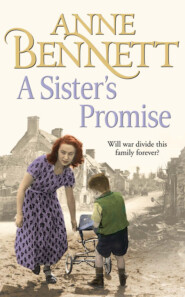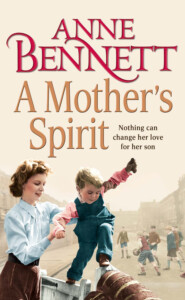По всем вопросам обращайтесь на: info@litportal.ru
(©) 2003-2025.
✖
To Have and To Hold
Настройки чтения
Размер шрифта
Высота строк
Поля
The window of Hobbies was full of wooden models of planes, cars and ships of all shapes, sizes and designs. Carmel was amazed at the detail and size of them.
‘My brother would spend hours in here,’ Lois said. ‘They sell kits, you know, to make the things you can see, and Santa always had one in his sack that he would drop off ready for Christmas morning.’ She wrinkled her nose and went on, ‘I can smell the glue even now. It was disgusting.
‘Now,’ she said, turning away from the shop, ‘I think the Rag Market is the place we’ll make for next, down by the church. Watch out for the trams. They come rattling around in front of St Martin’s like the very devil and there might be a couple of drayhorses pulling carts too.’
‘Drayhorses I have no problem with,’ Carmel said. ‘I’m used to horses, but those trams frighten the life out of me. I will give them a wide berth, never fear.’
Lois laughed. ‘You’ll soon get used to them,’ she said, but Carmel doubted she would. She’d seldom seen anything so scary.
Once inside the hall, there was a pervading odour.
‘What’s the stink?’ Carmel asked Lois. ‘It’s like fish.’
‘It is fish, left over from the weekdays when this place is used as a fish market,’ Lois said. ‘But never mind that. This is the place where bargains are to be had.’
Carmel thought it a strange place, for while some of the goods were displayed on trestle tables, others were just laid on blankets spread on the floor. She was very interested in the second-hand stalls where she saw many good quality clothes being sold comparatively cheaply, and she thought she would bear that in mind in case she needed anything another time.
She could have spent longer in the market, for such unusual things were being sold there. She stood mesmerised by the mechanical toys a man was selling. Catching Carmel’s interest, he wound up a spinning top.
‘On the table, on the chair, little devils go everywhere,’ he chanted. ‘Only a tanner. What d’you say?’
What Carmel would have liked to have said was that she would take four or five to send home to her wee brothers and sisters. She could imagine their excitement, but instead she turned her head away regretfully. ‘I’m sorry. I haven’t the money to spare.’
‘Your loss, lady.’
‘Come on,’ Lois urged. ‘I want you to see Peacocks. You can buy almost anything there, and we must go to the Market Hall before we leave.’
When they were outside the Rag Market a far more pleasant smell than that of stale fish assailed Carmel’s nostrils and she sniffed appreciatively.
‘That’s the smell from Mountford’s, where they’re cooking the joints of meat,’ Lois said. ‘Makes you feel hungry, doesn’t it?’
‘Not half.’
They passed the shop, where there was the tantalising sight of a sizzling joint on a spit turning in the window. Carmel felt her mouth water. It would be at least another hour before she ate anything, for she and Lois were not meeting the others until five and it was only four o’clock.
‘Come on,’ Lois urged. ‘Let’s go and see around Peacocks. I used to love this too when I was just a child.’
Peacocks was packed—Lois said it always was and Carmel could well see why, for the store had such a conglomeration of things for sale, clothes and toys as well as anything you would conceivably need for the house.
Outside Peacocks, a hawker had a stall selling fish. ‘What am I asking for these kippers?’ he demanded. ‘A tanner a pair, that’s what. Come on, ladies, get out your purses. You won’t get a bargain like this every day.’
Because of the press of people, the girls had reached the steps leading up to the gothic pillars either side of the door into the Market Hall before Carmel noticed the men. They were shabbily and inadequately dressed, their boots well cobbled, and the greasy caps rammed on over their heads hiding much of their thin grey faces. They all had trays around their necks, selling bootlaces, razor blades, matches and hairgrips. Carmel felt a flash of pity for them, and as soon as they were in the Hall and out of the men’s hearing, asked who they were.
‘Flotsam from the last war,’ Lois told her. ‘They can’t get proper jobs, you see. I mean, there is little work anyway, but some of these men couldn’t do anything hard or physical, because many are damaged in some way from the war, shell-shocked perhaps, or suffering from the effects of gas. There is one man comes sometimes and he’s blind and led along by a friend, and another with only one leg.’
‘It’s awful,’ Carmel burst out. ‘And so unfair. These men have fought for their country—surely the government should look after them now.’
‘Of course they should, but when has that made any difference?’
‘Yes, but—’
‘Look,’ Lois said, ‘this is your first experience of this, but I have seen them there for years. You get almost used to it, though if I have any spare cash I will buy something because I do feel sorry for them. But if we get upset, it won’t change things for them, will it?’
And of course it wouldn’t. Carmel saw that and she took her lead from Lois. In the Market Hall there was much to distract her, anyway, for, like the barrows outside, stalls selling meat, vegetables and fish were side by side with junk and novelty stalls and others selling pots and pans, cheap crockery, sheets and towels. However, for Carmel the main draw was the pet stall.
She had never owned a pet, and though she would have loved a cuddly kitten of her own, or a boisterous puppy to take for walks, she knew there had been barely enough food for the children, never mind an animal. She’d never have taken a defenceless animal near her father either, for she thought a man who would beat his wife and children without thought or care, wouldn’t think twice about kicking an animal to death if the notion took him.
There were rabbits and guinea pigs in cages, and twittering canaries and budgies that Lois spent ages trying to get to talk. Carmel had never heard of a talking budgie and was inclined to be sceptical. However, just as Lois was maintaining that some budgies did talk and she had an aunt who had owned such a bird, there was a sudden shriek and a raucous voice burst out, ‘Mind the mainsail. Keep it steady, lads. Who’s a pretty boy then?’
The milling customers laughed and the stall owner went into the back to bring out a parrot that neither Lois nor Carmel had noticed.
‘There,’ Lois said with satisfaction. ‘I told you that some birds can talk.’
‘You said budgies could, not parrots,’ Carmel contradicted. ‘I knew about parrots, though I had never heard one until today.’
‘Even budgies…’
However, Lois didn’t get to finish the sentence, because someone beside her suddenly said, ‘It’s nearly five o’clock.’
Carmel put the kitten she had been holding back in the box, and stood up, brushing the straw lint from her coat. ‘We’d better get our skates on,’ she said. ‘The other will be there before we are.’
‘No, wait on,’ Lois said. ‘If we are a few minutes late, they won’t mind. They can have a cup of tea or something.’
‘But what are we waiting for?’
‘The clock,’ Lois said, pulling Carmel to the front of the stall. Everyone was suddenly still, Carmel noticed, and gazing up at the wooden clock on the wall, watching the seconds ticking by. And then the hour was reached and three figures, like knights and a lady, emerged to strike a set of bells to play a tinkling, but lilting tune. Carmel was as enthralled as anyone else.
‘Oh, it’s lovely,’ she cried, when the strains of it had died away.
‘It wasn’t always here,’ Lois said, as they walked outside again. ‘It was first put into an arcade up Dale End way, but my dad said that the arcade went out of business through lack of custom. He told me the man who made the clock was never paid the full asking price and he is supposed to have put a curse on it and that was why the arcade in Dale End had to close. That is hardly going to happen here, though, to the thriving Market Hall. You saw that for yourself today.’
‘Yes I did,’ Carmel agreed. ‘But I can’t help feeling sorry for the man who made the clock not getting the money for it. It’s a magnificent piece of work and must have taken him ages and ages—and then to be diddled like that…’
‘You’re all for the underdog, aren’t you?’ Lois said. ‘First the old lags on the market steps and now the poor clockmaker. I’ve never ever given that man a minute’s thought.’
‘I don’t like unfairness.’
‘No more do I,’ Lois said. ‘Only now that I am nearly grown up I see that there is unfairness everywhere, and as individuals there isn’t much we can do about it. The poverty of this place, which I imagine is repeated in most cities, would really depress you if you let it. You sometimes have to rise above it, even if you care desperately.’
Carmel said nothing more, for wasn’t that just what she had done—risen above neglect, poverty and the downright tyranny of her home and left the others to manage as best they could? She had cared while she was there, for all the good it did, but when this means of escape had been handed to her, she had grasped it thankfully and pulled herself up. She had no intention of letting herself go back to that sort of situation ever again and so without another word she followed Lois to meet the others.
CHAPTER FOUR (#ulink_7d439f1f-67a0-59d4-91f9-33ce8ac880f3)
Carmel was surprised when, after a very substantial tea, Jane and Sylvia elected to go back to the Bull Ring when Lois asked them what they wanted to do for the evening.
‘Is there any point?’ Carmel asked. ‘I mean, won’t everywhere be closed now?’
Sylvia laughed. ‘Not tonight,’ she said. ‘Tell you, girl, you’ve not lived till you see a Saturday night down the Bull Ring.’











